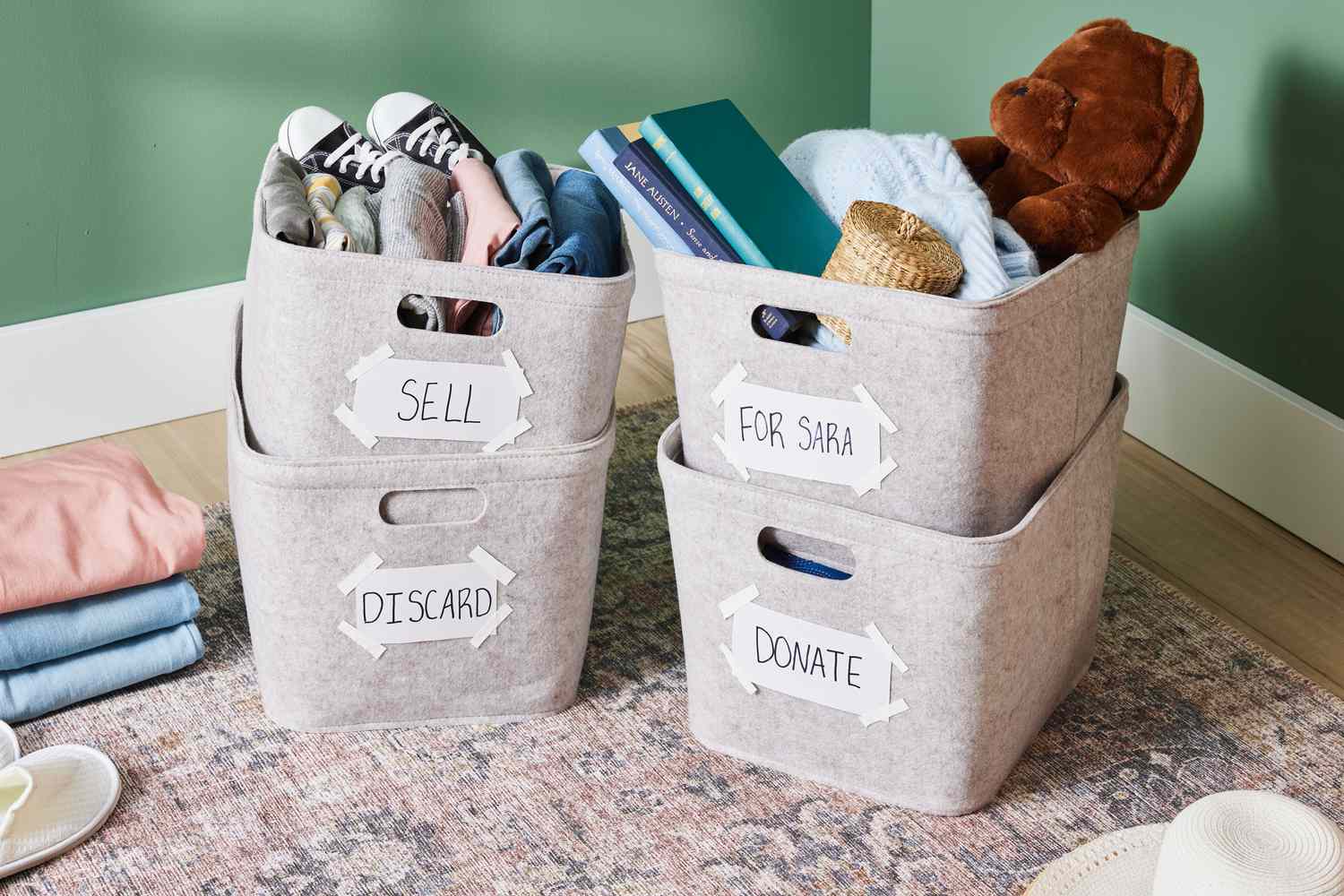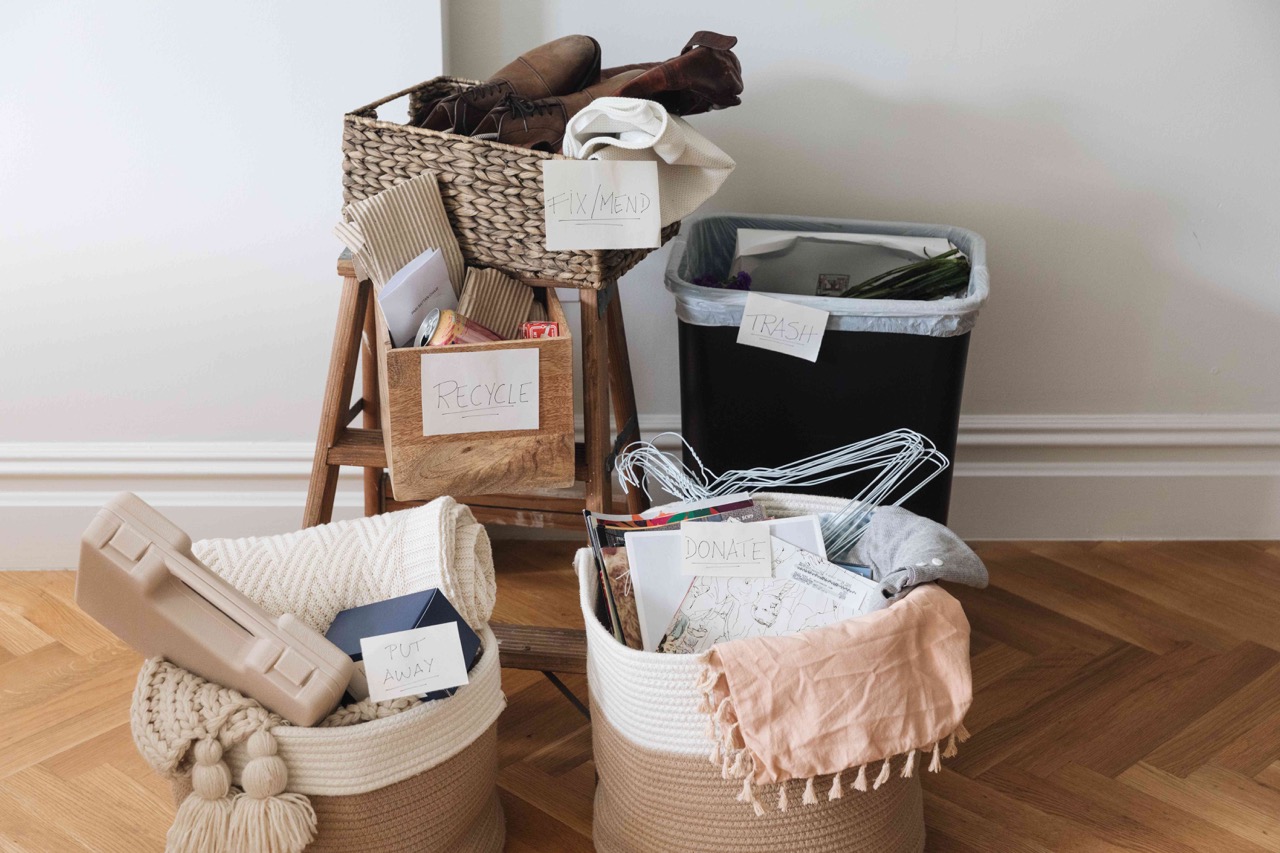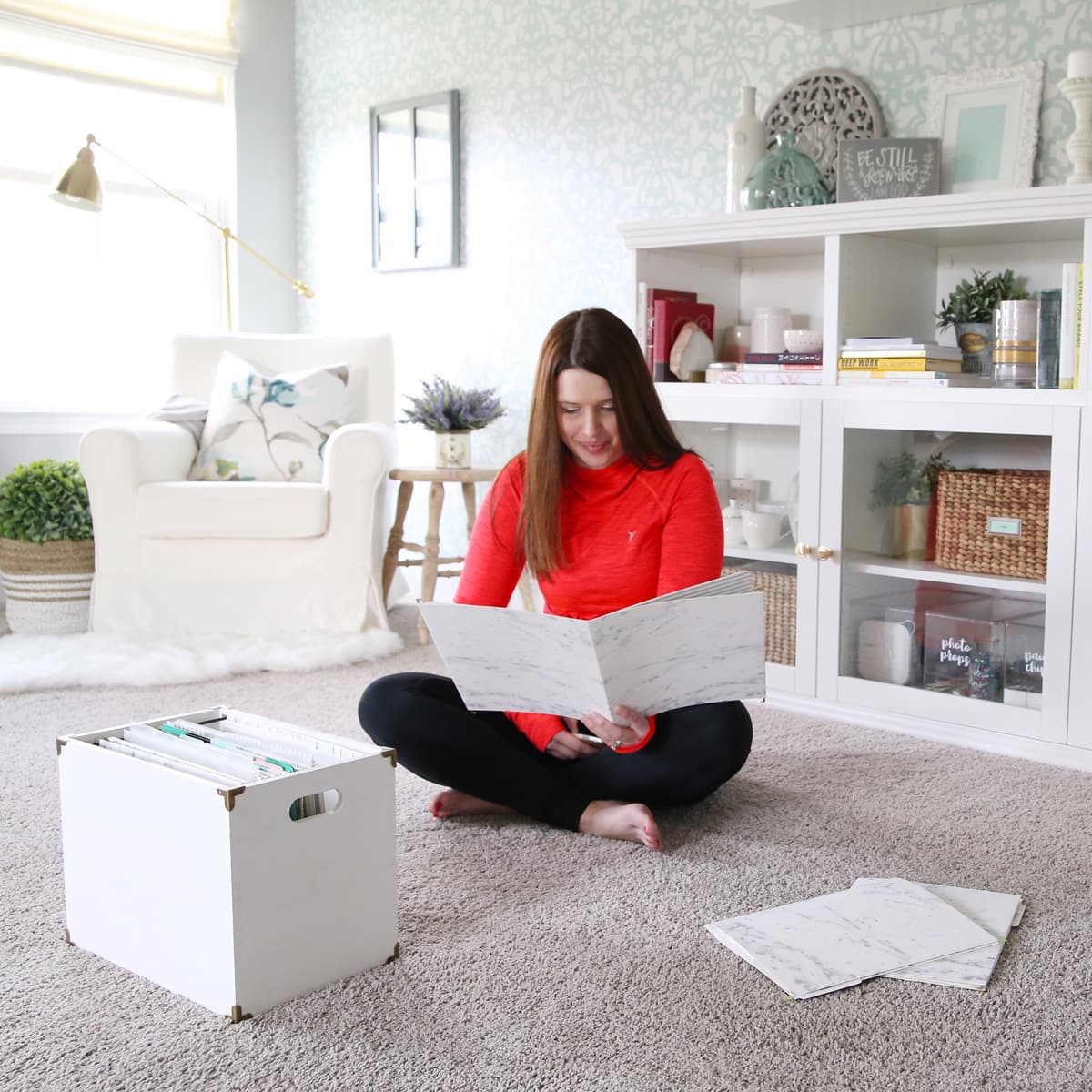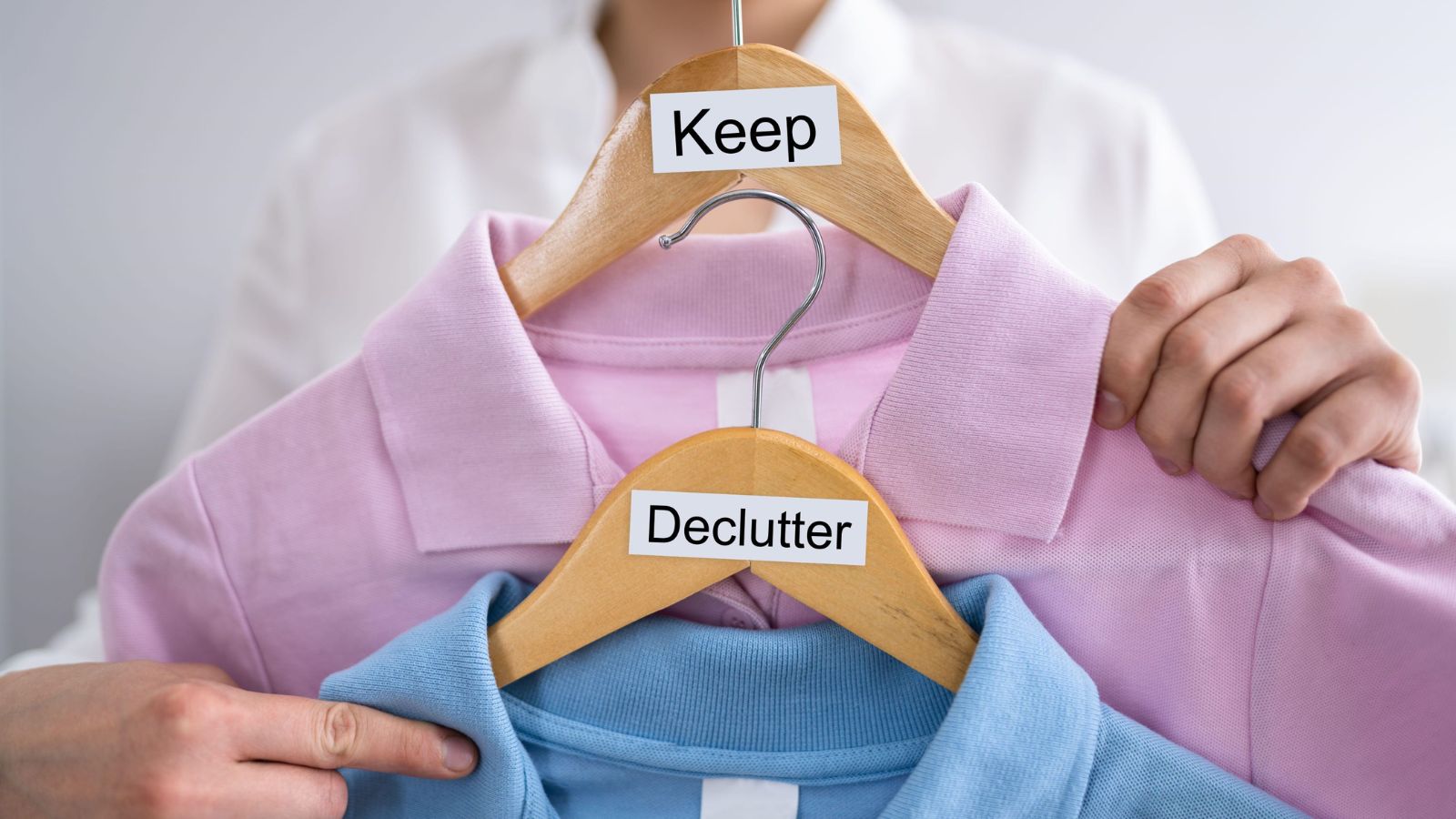Home>Storage & Organization>Decluttering Tips & Tricks>Why Is It Hard To Declutter


Decluttering Tips & Tricks
Why Is It Hard To Declutter
Published: December 25, 2023
Discover effective decluttering tips and tricks to overcome the challenges of decluttering your space. Simplify your life and create a clutter-free environment today!
(Many of the links in this article redirect to a specific reviewed product. Your purchase of these products through affiliate links helps to generate commission for Storables.com, at no extra cost. Learn more)
Introduction
Decluttering, the process of simplifying and organizing one’s living space, is often touted as a transformative practice that can bring about a sense of clarity and peace. However, for many individuals, the act of decluttering can feel like an insurmountable challenge. Understanding the reasons behind the difficulty of decluttering can shed light on the psychological and emotional barriers that hinder this process. By delving into the underlying factors that make decluttering hard, we can develop effective strategies to overcome these obstacles and embark on a journey toward a more organized and harmonious living environment.
Key Takeaways:
- Emotional attachment and fear of letting go make decluttering hard. Acknowledge sentimental value, reframe letting go as liberation, and envision the benefits to overcome these barriers.
- Overwhelm, lack of time, and perfectionism hinder decluttering. Break tasks into small steps, integrate decluttering into daily routines, and embrace “good enough” decision-making to overcome these challenges.
Read more: Why Declutter?
Emotional Attachment to Possessions
One of the primary reasons why decluttering can be a daunting task is the emotional attachment people develop towards their possessions. Objects often carry sentimental value, reminding individuals of cherished memories, significant life events, or beloved individuals. This emotional connection can make it challenging to part with items, as doing so may feel like relinquishing a piece of one’s history or identity.
Moreover, possessions can serve as tangible representations of aspirations, past accomplishments, or future aspirations. For example, a collection of books may symbolize a person’s intellectual pursuits, while a wardrobe filled with clothing from different life stages may reflect evolving personal style and self-expression. The emotional significance attached to these possessions can evoke feelings of nostalgia, pride, and comfort, making it difficult to consider parting with them.
Addressing this emotional attachment is crucial for effective decluttering. Encouraging individuals to acknowledge the memories and emotions associated with their possessions can help them discern which items truly hold value and which ones are simply clutter. By shifting the focus from the physical object to the underlying sentiment, individuals can begin to detach themselves from the need to hold on to every item, paving the way for a more objective approach to decluttering.
Fear of Letting Go
The fear of letting go is a powerful psychological barrier that often impedes the decluttering process. This fear can manifest in various forms, such as the fear of making the wrong decision, the fear of regretting discarding an item, or the fear of losing a part of oneself. Additionally, individuals may fear the potential consequences of letting go, such as feeling unprepared for the future or experiencing a sense of emptiness.
Moreover, the fear of letting go is closely intertwined with the concept of loss aversion, a cognitive bias in which individuals place greater emphasis on avoiding losses than acquiring gains. This innate tendency can lead people to overvalue their possessions and underestimate the potential benefits of decluttering, thereby reinforcing their reluctance to part with items.
To address the fear of letting go, it is essential to reframe the perception of decluttering as a process of liberation rather than deprivation. Encouraging individuals to envision the newfound space, clarity, and freedom that decluttering can bring can help alleviate their apprehensions. Additionally, emphasizing the positive impact of decluttering, such as reduced stress, enhanced productivity, and a renewed sense of control, can empower individuals to confront their fears and take proactive steps toward letting go of unnecessary possessions.
Overwhelm and Procrastination
Feeling overwhelmed by the sheer volume of possessions and the prospect of decluttering is a common obstacle that many individuals encounter. The accumulation of items over time can lead to cluttered and disorganized spaces, creating a daunting task for those seeking to restore order. This overwhelm can be further compounded by the perceived enormity of the decluttering process, causing individuals to procrastinate or avoid addressing the issue altogether.
Procrastination often arises from a sense of being ill-equipped to tackle the task at hand, coupled with a fear of investing significant time and effort without guaranteed results. Furthermore, the mental and physical energy required to make countless decisions about each item can be draining, leading to a cycle of avoidance and delay.
To overcome overwhelm and procrastination, breaking down the decluttering process into manageable steps is essential. By setting small, achievable goals, individuals can gradually chip away at the clutter, alleviating the sense of overwhelm and fostering a sense of accomplishment. Additionally, implementing a structured approach, such as focusing on one area at a time or categorizing items based on priority, can provide a clear roadmap for decluttering, reducing the likelihood of procrastination.
Moreover, addressing the emotional toll of overwhelm is crucial. Encouraging individuals to acknowledge their feelings of stress and apprehension, while emphasizing the potential benefits of decluttering, can help shift their mindset from avoidance to action. By reframing decluttering as a series of manageable tasks that lead to a more organized and serene living environment, individuals can overcome overwhelm and tackle the process with renewed motivation.
Start small by decluttering one area at a time, such as a drawer or a closet. Set a timer for 15-30 minutes to avoid feeling overwhelmed.
Lack of Time and Energy
One of the most prevalent challenges that individuals face when contemplating decluttering is the perceived lack of time and energy to devote to this endeavor. Modern lifestyles often involve juggling numerous responsibilities, leaving little room for tackling extensive decluttering projects. Additionally, the mental and physical energy required to make decisions about possessions, sort through belongings, and organize spaces can feel overwhelming, particularly after a long day of work or other commitments.
Furthermore, the perception that decluttering requires a significant time investment can deter individuals from initiating the process. The belief that decluttering must be completed in one extensive session can create a barrier for those who cannot dedicate an entire day or weekend to this task.
To address the challenge of lack of time and energy, it is essential to promote the concept of incremental progress. Encouraging individuals to allocate small pockets of time, such as 15 minutes each day, to decluttering can make the task feel more achievable and less daunting. By integrating decluttering into their daily routines, individuals can steadily make progress without feeling overwhelmed by the time commitment.
Additionally, emphasizing the potential benefits of decluttering, such as reduced stress, increased efficiency, and a more serene living environment, can serve as a source of motivation for individuals to allocate time and energy to this endeavor. By highlighting the positive impact that decluttering can have on their daily lives, individuals may be more inclined to prioritize this activity and carve out the necessary time and energy to engage in the process.
Read more: Why Are Guava Seeds So Hard
Perfectionism and Decision-Making
Perfectionism can be a significant impediment to the decluttering process, as individuals may feel compelled to make flawless decisions about each item they consider discarding. This pursuit of perfection can lead to decision-making paralysis, as individuals become overwhelmed by the pressure to make the “right” choices. Additionally, the fear of making mistakes or discarding something of potential value can prevent individuals from taking decisive action, perpetuating the cycle of clutter and indecision.
Moreover, the sheer volume of possessions can exacerbate the challenge of decision-making, as individuals may struggle to determine the significance and utility of each item. This can lead to a sense of cognitive overload, making it difficult to prioritize and declutter effectively.
To address perfectionism and decision-making challenges, it is crucial to reframe the approach to decluttering. Encouraging individuals to embrace the concept of “good enough” decision-making can alleviate the pressure of striving for perfection. By emphasizing that decluttering is a process of prioritizing and simplifying, rather than achieving flawlessness, individuals can feel liberated from the burden of making impeccably precise choices.
Additionally, providing individuals with practical strategies for decision-making, such as categorizing items based on frequency of use, sentimental value, or practicality, can streamline the decluttering process. By offering a structured framework for evaluating possessions, individuals can navigate the decision-making process with greater ease and confidence.
Furthermore, fostering a mindset of self-compassion and acceptance can empower individuals to make decisions without succumbing to the pressures of perfectionism. Emphasizing that decluttering is a personal journey, and that it is natural to encounter challenges along the way, can alleviate the fear of making mistakes and instill a sense of resilience and determination.
Conclusion
Understanding the psychological and emotional barriers that make decluttering challenging is essential for developing effective strategies to overcome these obstacles. The emotional attachment to possessions, fear of letting go, overwhelm and procrastination, lack of time and energy, and perfectionism and decision-making paralysis are common factors that contribute to the difficulty of decluttering.
By acknowledging the sentimental value attached to possessions and reframing the approach to letting go, individuals can begin to detach themselves from unnecessary items and embark on a journey toward a more organized and harmonious living environment. Breaking down the decluttering process into manageable steps, integrating it into daily routines, and highlighting the positive impact of decluttering can help address feelings of overwhelm and procrastination, as well as the perceived lack of time and energy.
Furthermore, promoting a mindset of self-compassion and acceptance, while providing practical decision-making strategies, can empower individuals to confront perfectionism and make decisive choices about their possessions. By cultivating awareness of these challenges and offering supportive guidance, individuals can navigate the decluttering process with greater confidence and resilience.
Ultimately, the rewards of decluttering extend far beyond the physical act of organizing belongings. By creating a space free from unnecessary clutter, individuals can experience a sense of liberation, increased clarity, and enhanced well-being. Embracing the journey of decluttering as a transformative and empowering process can pave the way for a more intentional and fulfilling lifestyle, where the items that remain hold true value and purpose.
Frequently Asked Questions about Why Is It Hard To Declutter
Was this page helpful?
At Storables.com, we guarantee accurate and reliable information. Our content, validated by Expert Board Contributors, is crafted following stringent Editorial Policies. We're committed to providing you with well-researched, expert-backed insights for all your informational needs.















0 thoughts on “Why Is It Hard To Declutter”